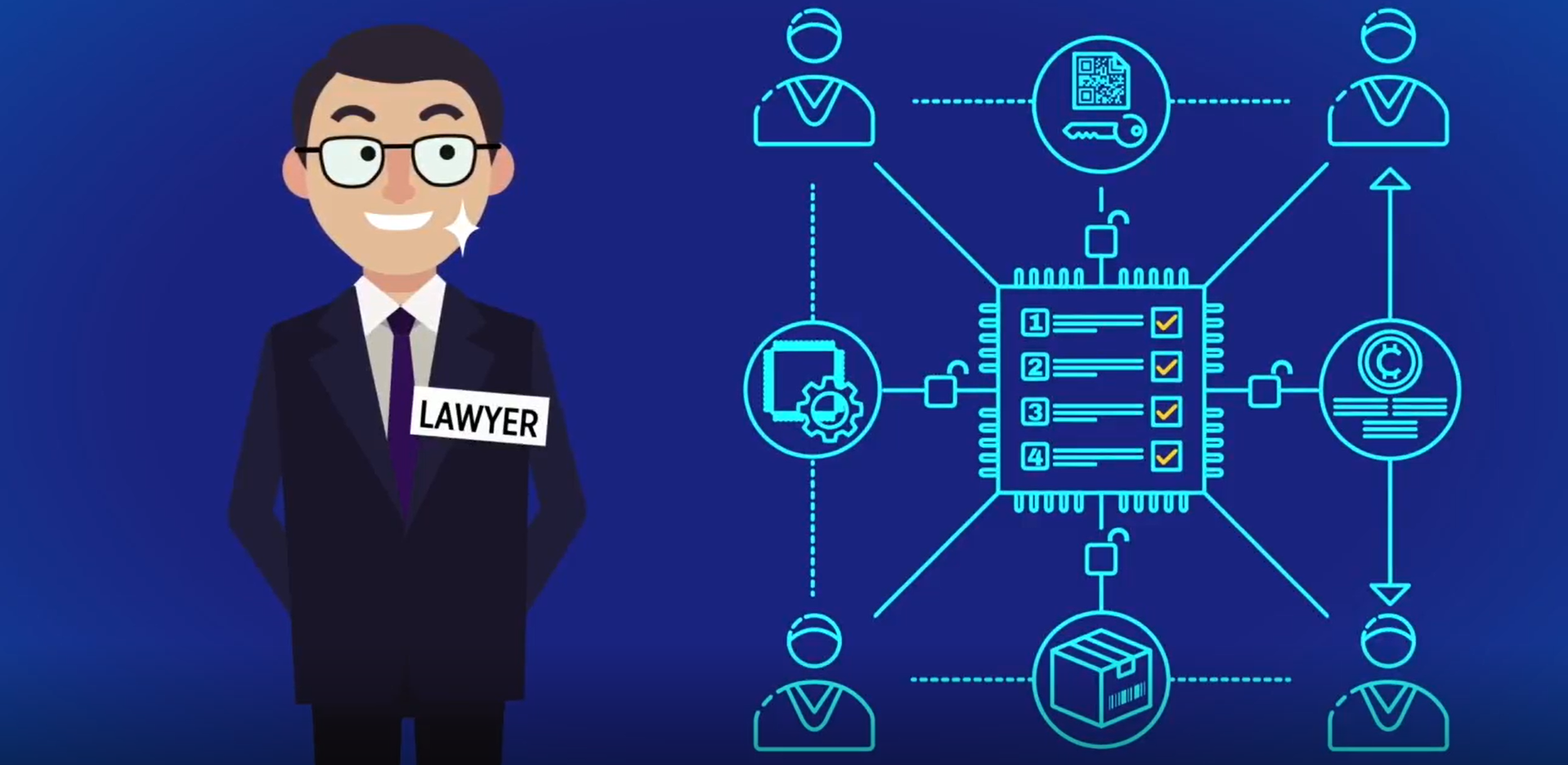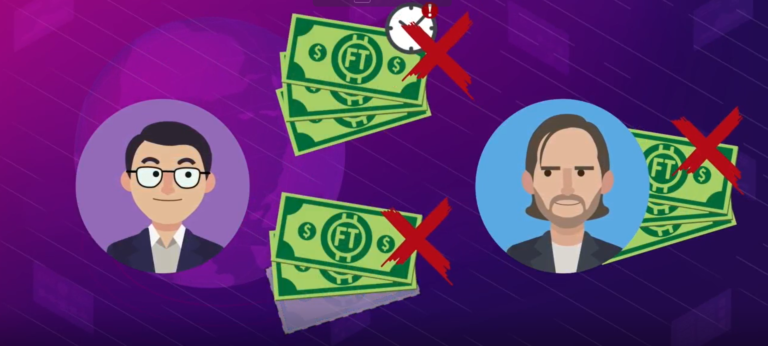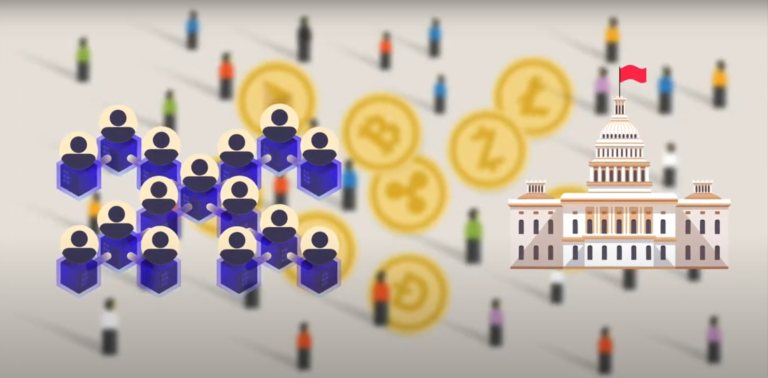Transcript
The term “Smart Contract” sounds really exciting and futuristic, right? But hold your excitement, because the current form of smart contracts are neither smart nor even contracts.
Computer scientist Nick Szabo, an influential figure in the blockchain and cryptocurrency world, is credited with initially coining the phrase “smart contract” as early as the mid-1990s. A smart contract is simply a computer protocol, really some lines of code that automatically execute a specified action, like releasing a payment, when certain conditions are fulfilled.
This code might represent an aspect of a contract, but the code itself is not actually a contract. Additionally, it’s not smart because a person still needs to think of the terms that will be represented by the code. So someone like a lawyer still needed to think through and negotiate the terms to be coded.
If these smart contracts are actually not smart nor contracts, why are they so special?
To answer that question, imagine you are cleaning out your room and find a tennis racquet you never used and now want to sell. You go online and are able to find a buyer, say David, that lives nearby. You set up a meeting and show David the tennis racquet. David confirms his interest and then gives you the money and you hand over the tennis racquet. In this example, there is minimal risk that David will be able to run off with the racquet without paying you.
But let’s imagine the same situation except you live far away from each other, so you aren’t able to meet, do you feel comfortable sending the racquet through the mail and trusting David to pay you?
Now this type of risk is usually less of an issue when dealing with large companies, like when you order a t-shirt from your favorite brand’s online store, or people you may have repeated transactions with. But for one-off situations or large, complicated transactions, like a home purchase, there can be some uncertainty about payment, delivery, quality of product, etc.
In such a situation then, what if you can find a third party, say Jon, to take the payment from David before you send the racquet, and you’ll get the payment from Jon when the racquet is received? Would you feel more comfortable? This is exactly how smart contracts work: using “if something happens then…” or “when something happens then…” type of logic to solve this problem. So in our example, if a specified contractual term, say racquet delivery, had been fulfilled, then the protocol would execute a release of payment, thus solving the problem.
How does this relate to blockchain?
With blockchain technology, these smart contracts can be stored or embedded on a blockchain, so instead of being visible to only the counterparties that may have a copy of the contract like in a traditional contracting situation, a smart contract is available widely for inspection on the blockchain.
In the example of selling your racquet, not only do you, David and Jon know about the contract, but it is also visible to the bank that processes David’s payment, the delivery guy who delivers the package, and every other actor that’s involved in this transaction, or has access to the blockchain in general.
The distributed nature of the blockchain makes it difficult for a bad actor to not pay, delay payment, manipulate terms, or otherwise deviate from the terms of the original agreement because the terms are recorded across the network and cannot be changed. And once they are fulfilled then payment is self-executing and happens automatically.
So what are the benefits of a smart contract?
Well, some things that may come to mind are: One, these things don’t require human interpretation, Which means, when the blockchain tracks that the racket is received, hence taking out some human error. The reason for that is because they’re self-executing. So there’s no issue with a human doing something incorrectly, as part of processing a contract, or it removes some of the temptation that, maybe someone feels like: well if I keep my end of the deal then I end up being worse off. So it removes this human temptation issue.
Additionally, once a smart contract is coded in, generally it can’t be changed, so it’s immutable. Because of those factors, this ultimately should save time and money, thus making things more efficient and reducing transactional friction.
Moreover, if we tie this back into the tennis racquet example, it removes the need for a third party. For lots of transactions historically, a third party has been necessary to hold payment or collateral due to risk related to a lack of trust, which is something we’ve talked about.
Perhaps the most common form of this type of third party is something known as an escrow agent. Imagine that instead of buying a tennis racquet a US company is trying to purchase a big building in another country, say, China.
They do not know each other, and they cannot meet somewhere with a pile of cash to make the payment and sign the deed at the same time. So the two contracting parties may enter into this staring contest of “Who’s going to pay first?” or “Who’s going to act first?”.
In this situation, an escrow agent would serve as the third party or a middle party: on one hand, holding the payment from the US company, and on the other hand, holding the signed deed or legal agreement from the building owner. Once the two parties agree to pay and finalize the terms of the transaction, the agent will transfer the money and the deed simultaneously, ensuring the building owner will get their money, and the building purchaser will receive the legal title and the relevant documents, so they can own the building.
As you can see smart contracts would serve the purpose of cutting out the middle party be it Jon in the tennis racquet example, or the escrow agent in a large international real estates transaction. And as we previously discussed, a lot of time and money can be saved by cutting out the middle men. But does that mean smart contracts are great solutions for all contracting relationships or situations? The answer to that is “no”, and we’ll discuss why that is in the next video. But before that, we’d like you to think about a question: what are the situations in which a smart contract may make your life easier?







